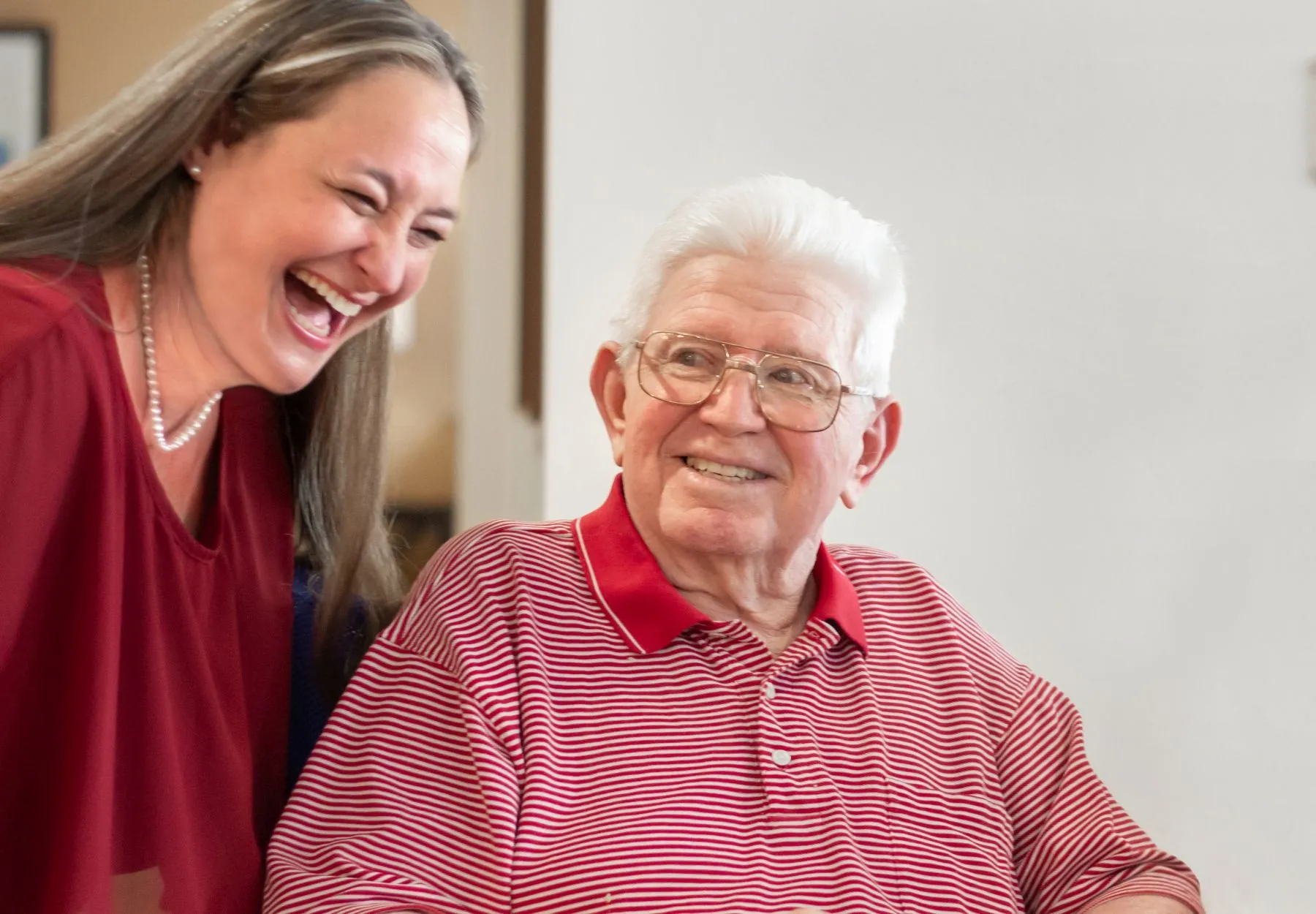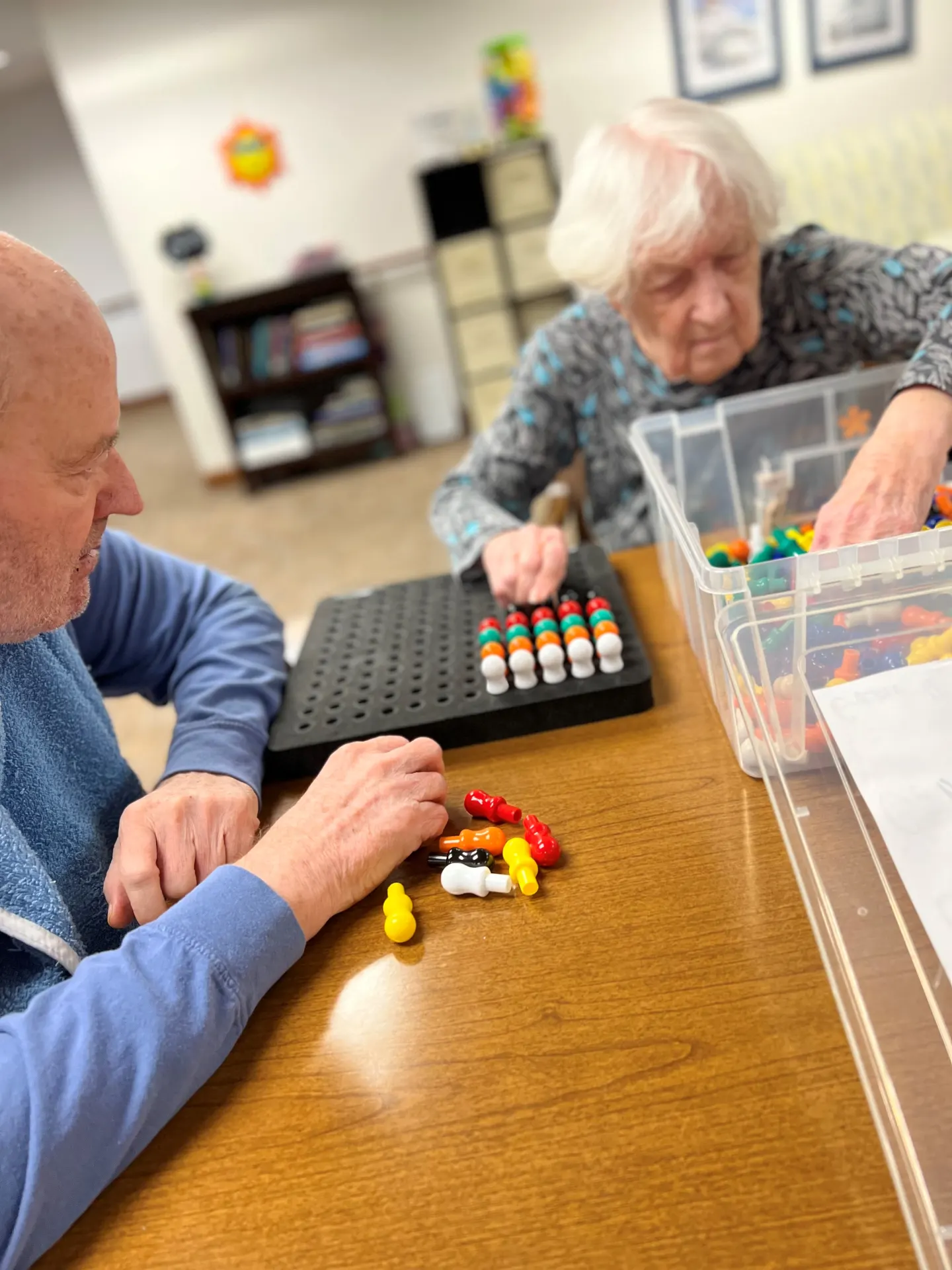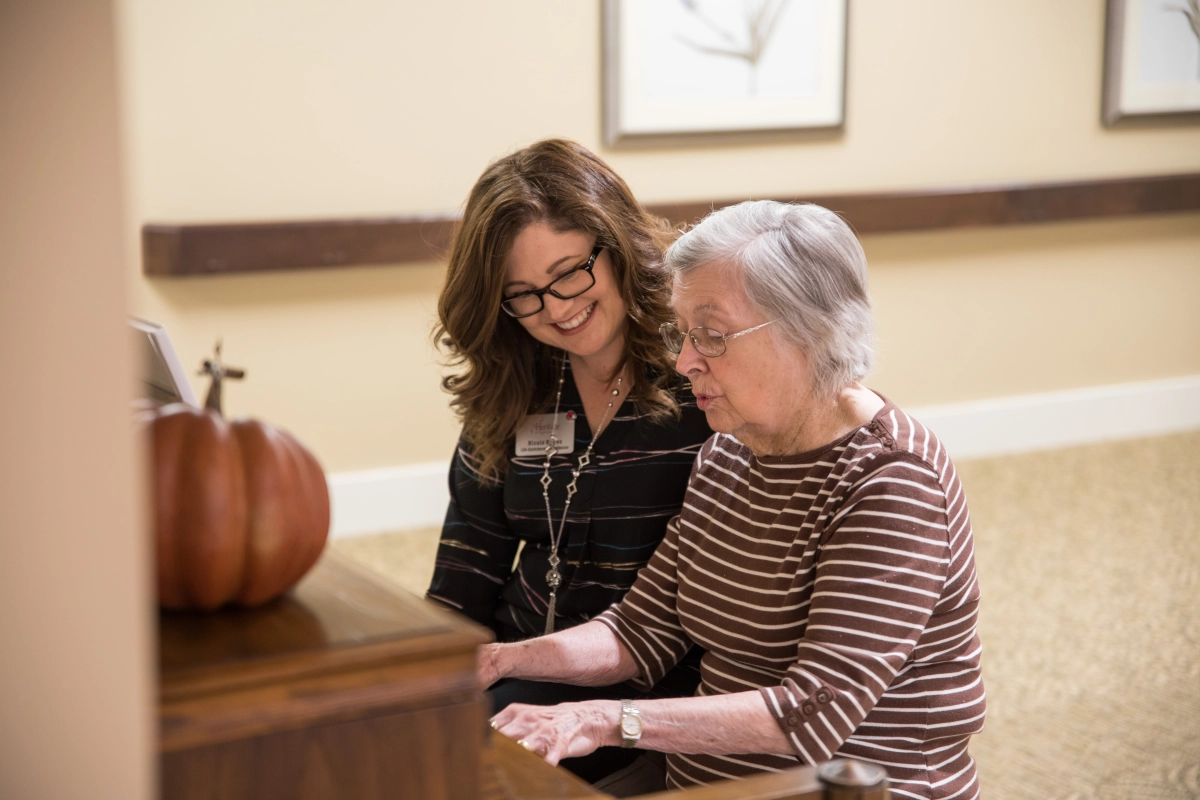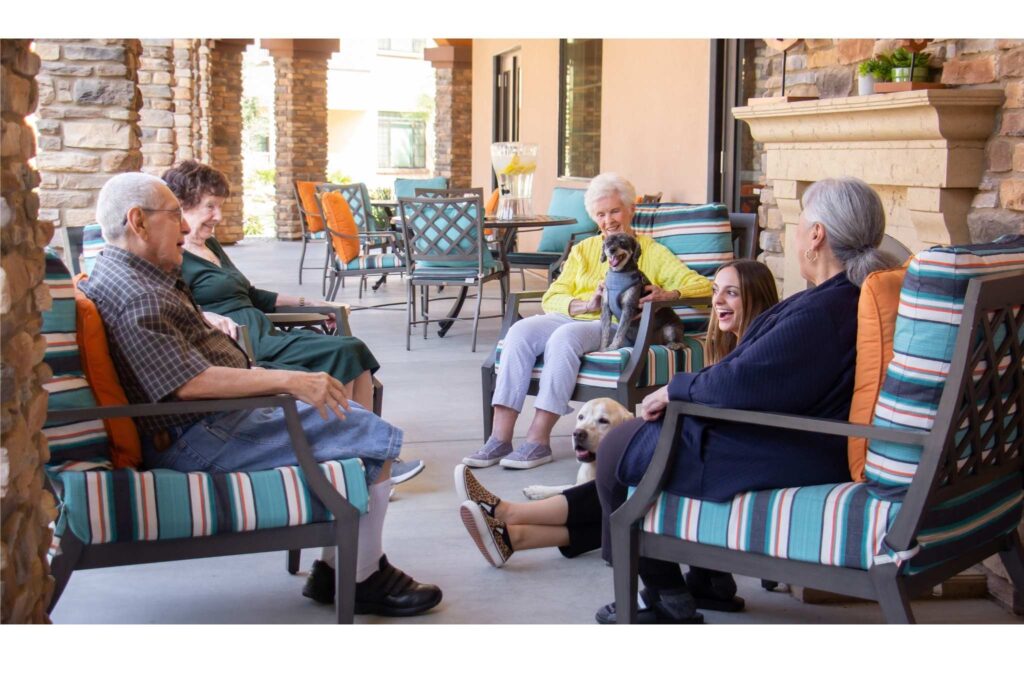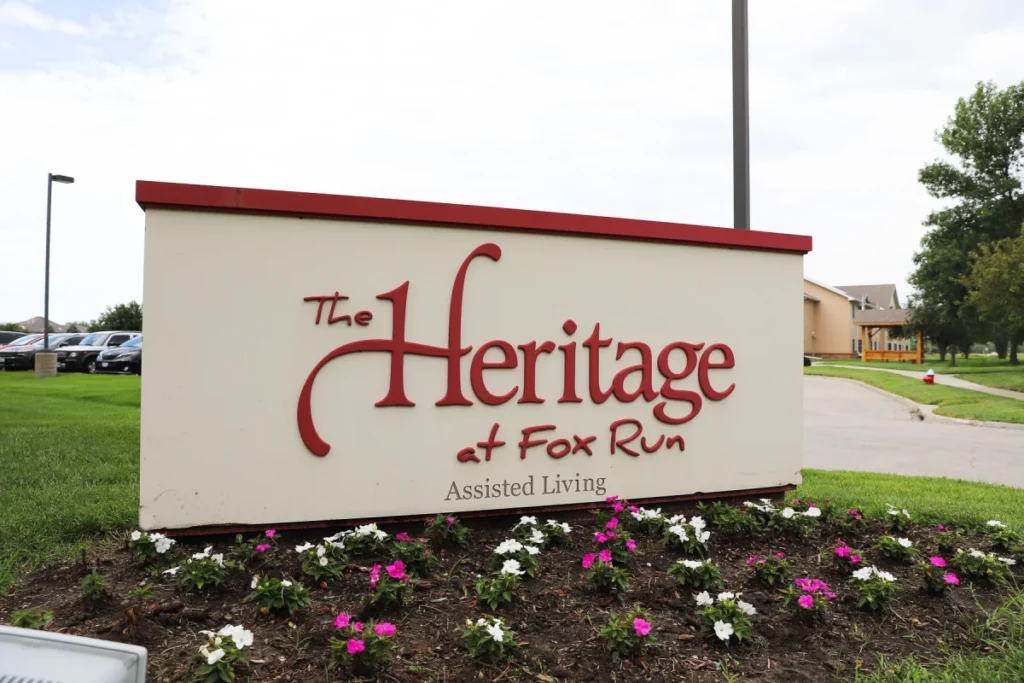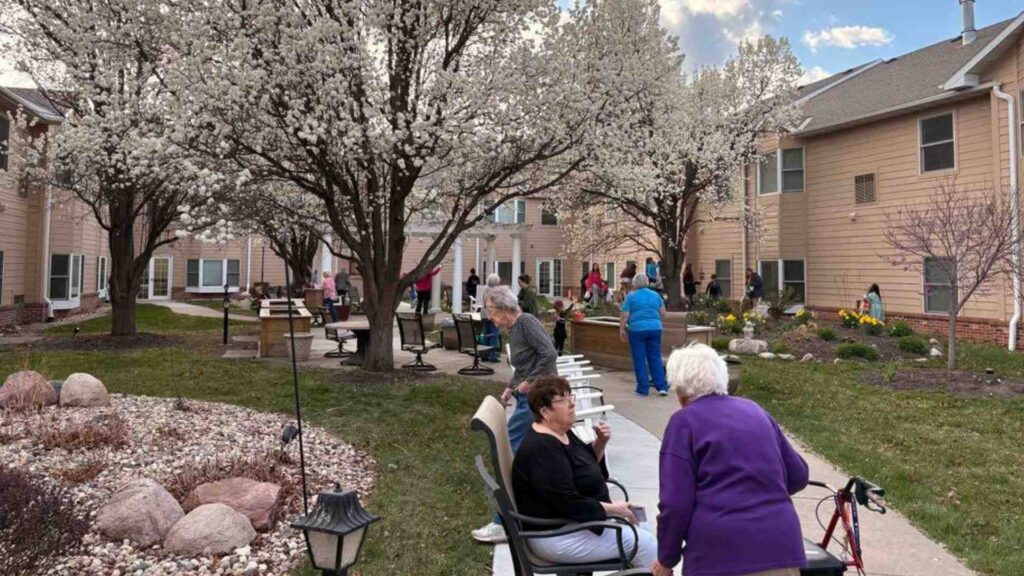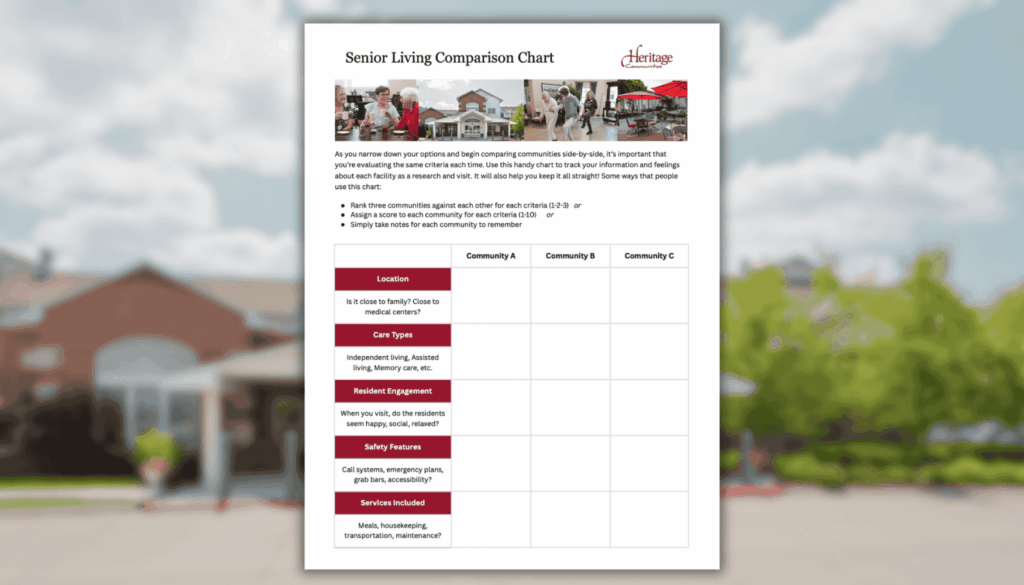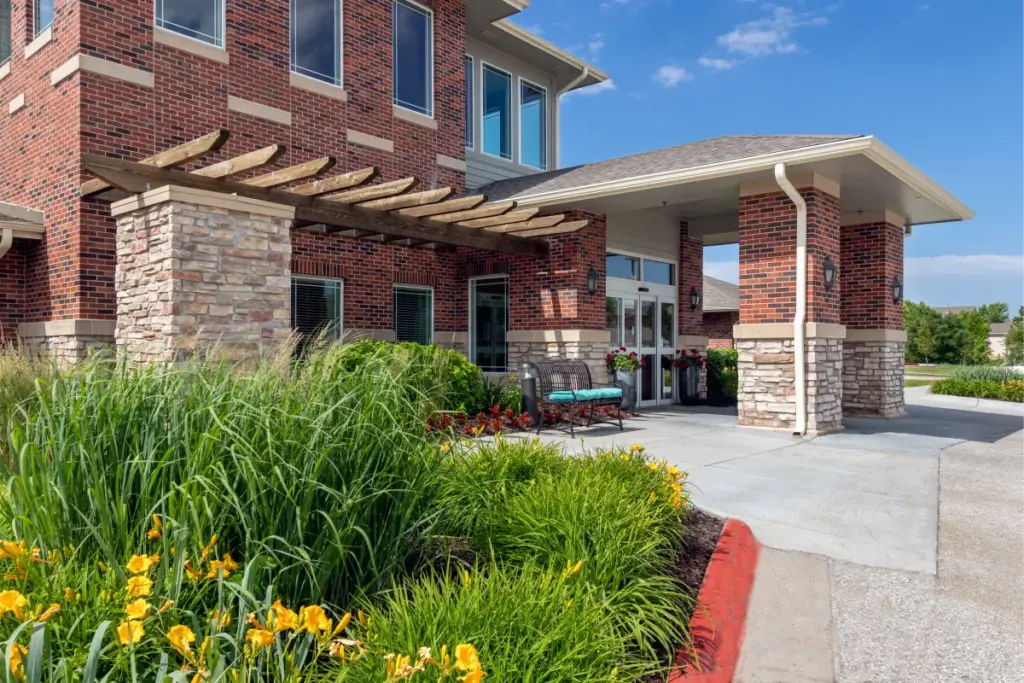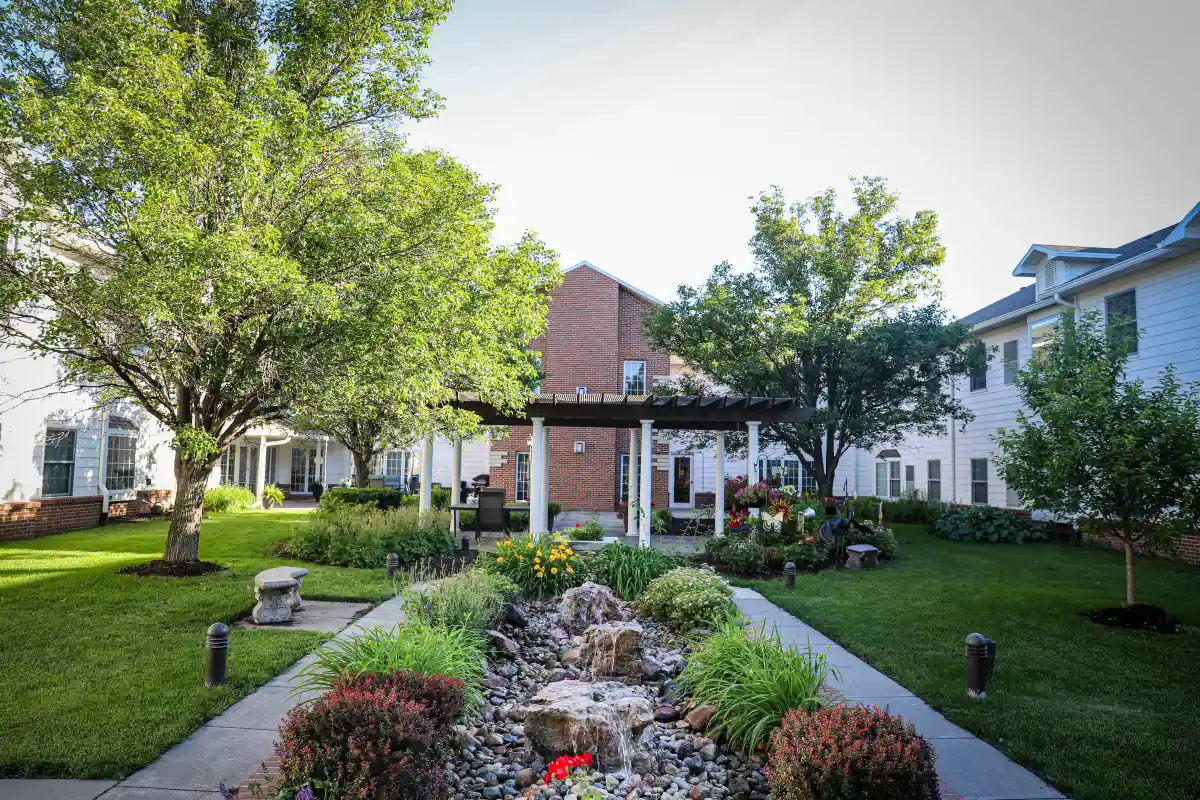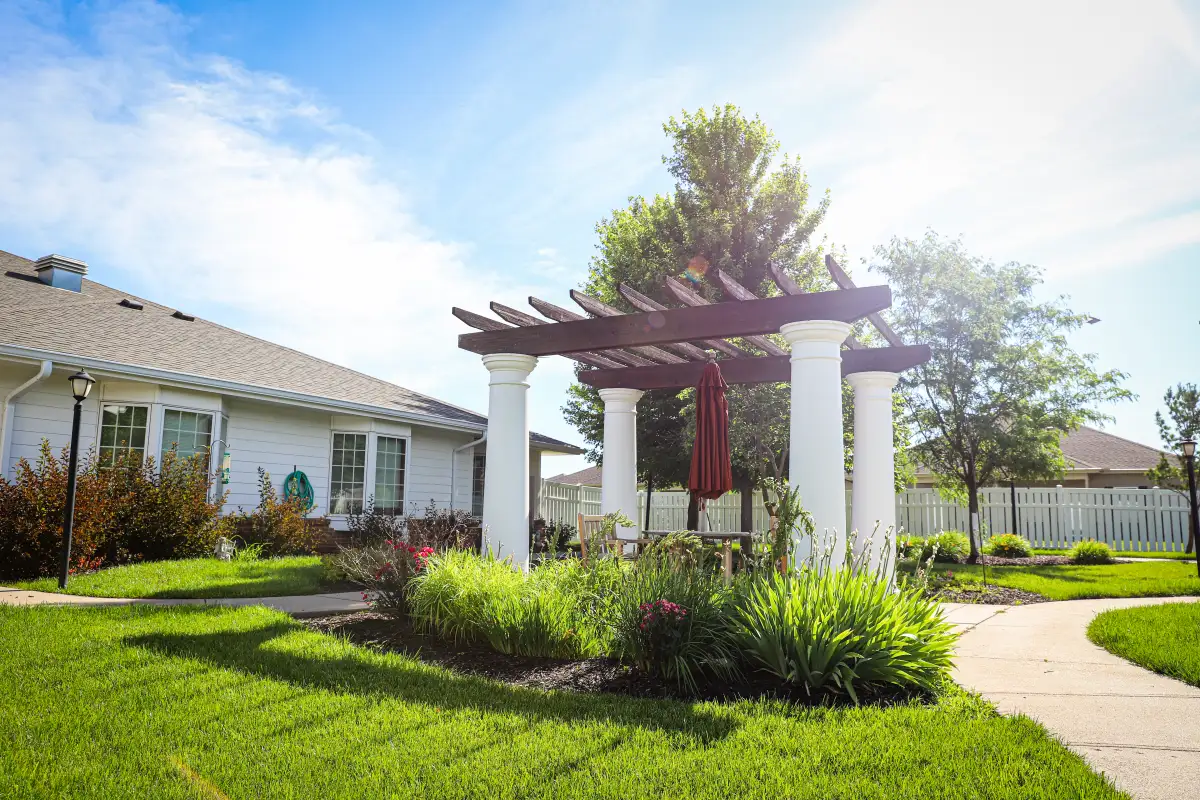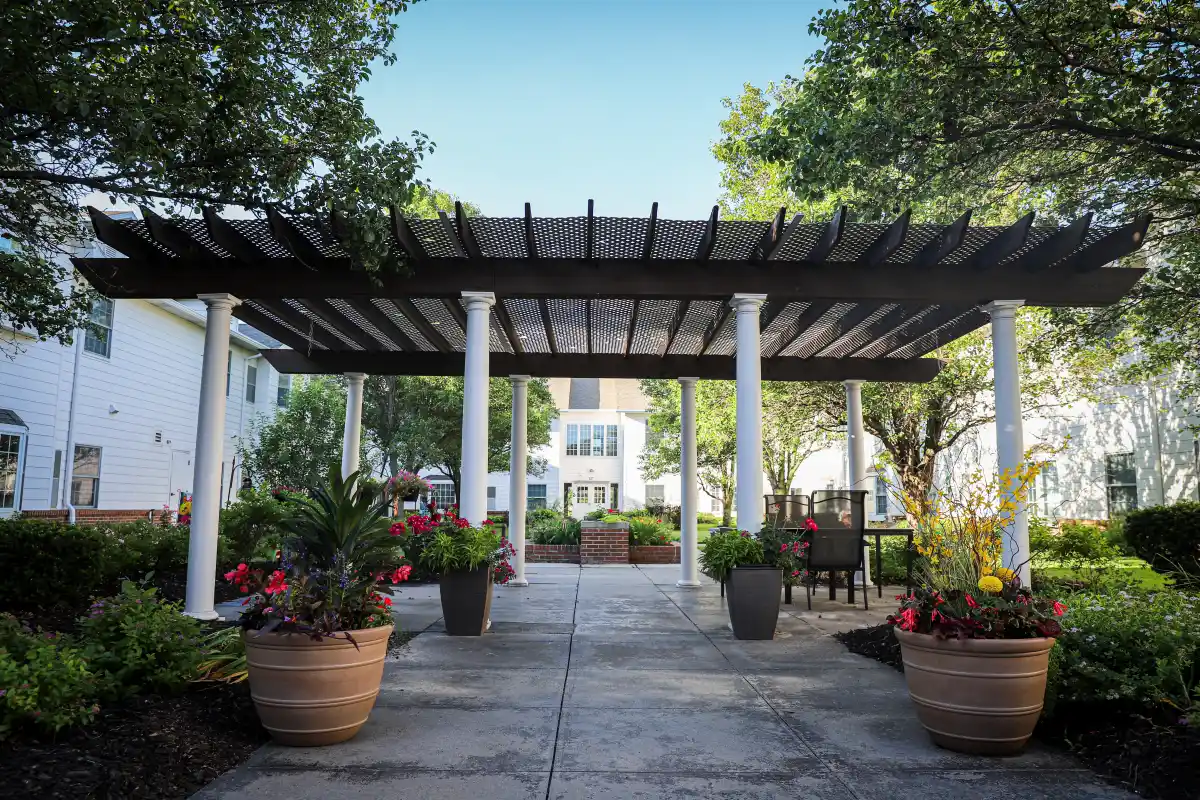Memory Care at The Heritage at Shalimar Gardens
Explore Memory Care in Fremont, NE at The Heritage at Shalimar Gardens
Joy, dignity, and respect are always at the forefront of our philosophy. We are driven by a goal to provide more than just a therapeutic experience for your loved ones, we want them to find meaning every day. Our team of compassionate caregivers is here to help your loved one with Alzheimer’s disease or other forms of dementia transition into memory care with a plan personalized to them.
Schedule a Tour

What To Expect With The Heritage at Shalimar Gardens Memory Care
When you choose The Heritage at Shalimar Gardens, you’ve found a community where your loved ones can Live Better in an environment built around their physical and cognitive health needs. Our community is easy to navigate, and memory care suites are specially crafted to reduce stress while embracing the small, meaningful touches that make us a home.
As a central part of our memory care program, our associates really take the time to understand your loved ones’ needs by developing a strong relationship with them built on trust and compassion. In keeping with our core value of Always Learning, caregivers are continuously trained to adapt to the evolving nature of memory impairment so we can maintain a strong bond with our residents.
Download a BrochurePersonalized Memory Care Services
Portraits®
Portraits® at The Heritage at Shalimar Gardens is designed specifically for residents with advanced memory impairments and all forms of dementia. Our specialized program focuses on creating a supportive environment where your loved ones can engage in meaningful activities that stimulate their senses and minds. We know that cognitive impairment is stressful, which is why the activities in the Portraits® program are crafted to emulate your loved one’s personal history, interests, and abilities. Whether it’s through art, music, crafts, tactile experiences, or a range of other memory exercises, your loved ones can feel a sense of purpose and accomplishment as they exercise and preserve their existing faculties.
This is living better with specialized care.
If someone you love is living with Alzheimer’s disease or another form of age-related dementia, we can help. Our specialized approach to Memory Care will help your loved one feel more like themselves – happier, more engaged and appreciated.
- Programming focused on abilities, not disabilities
- Certified and attentive support staff on site 24/7 and trained in accordance with the guidelines of the Alzheimer’s Association®
- Help with all activities of daily living: medication management, bathing, dressing, grooming, ongoing orientation and guidance
- Comfortable private or companion suites starting at $5,683/month
- Respect for individual histories and preferences
- Meals and snacks as desired
- Culture that fosters moments of fun
- Lifestyle of engagement – social, physical and spiritual
- Safe and secure environment
How Can We Help?
Fill out the form and we’ll get back to you shortly.
Enhanced Safety Available Only at The Heritage
As a special feature of our community, our memory care apartment homes are equipped with the AUGi monitoring system. Powered by predictive Artificial Intelligence, this tool is an in-room monitor that alerts our caregivers of behavior that could lead to a fall or one of many other medical emergencies. Unlike other reactive memory care safety monitoring tools, AUGi is predictive. It will monitor trends in your loved one’s behaviors and notify our care team of changes in your loved one’s condition that could indicate health and safety concerns. With this powerful tool, we are able to respond when we see behavior that could lead to a fall and are able to keep watch over every resident’s well-being 24 hours a day. Learn more about this safety-enhancing technology now available only at area Heritage Communities.
Learn how we amplify resident safety with Artificial Intelligence.

Family Involvement and Support
We want to hear from you! Sharing your loved one’s stories, preferences, and needs helps us provide more personalized and effective care. To ensure we’re meeting each resident’s needs, we hold a weekly Spotlight meeting where we review any resident who has exhibited a change in condition and may need additional care or support. We discuss their situation, determine the necessary changes to their care plan, and collaborate with the family to keep them informed. Additionally, we offer support resources and regular updates on your loved one’s progress so you can be confident they’re receiving the care they deserve.
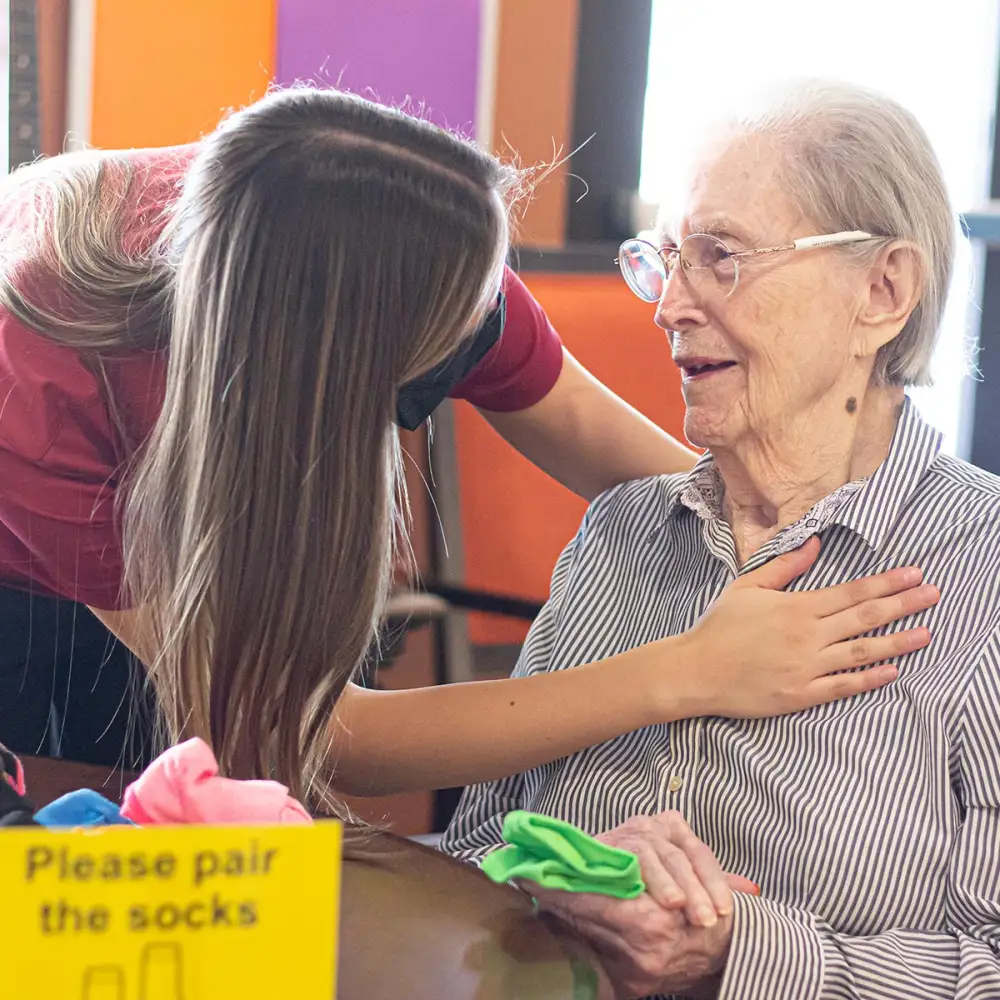
Comprehensive Care
Here’s a glimpse of what we offer:
- Accessible caregivers trained in dementia care are available around the clock
- Personalized care plans, including medication management, bathing, dressing, grooming, cueing, and reminders
- Portraits programming
- Coordination with physicians, therapists, home health providers, and medical supply companies
- Engaging multisensory activities to stimulate the mind and body
- Three nutritious meals daily and snacks as desired
- Housekeeping and laundry services
- Scheduled medical transportation
- Beauty salon and barbershop
- Secure outdoor patio, garden, and walking path for fresh air and relaxation
Activities and Events at The Heritage at Shalimar Gardens
From art and music therapy to planned outings and spontaneous activities, there’s always something fun happening here. Our life enrichment team builds not only individualized activity into every resident’s daily schedule, but also group activities and events to build social engagement and camaraderie among our memory care residents. You will not see our residents sitting alone and apart from the group for long. Our team strives to keep each resident connected with the community, involved in purposeful activity, and finding moments of joy and meaning. Check out our event calendar to see what’s coming up!
Activities and EventsMemory Care Floor Plans, Features, and Amenities
Our secure memory care suites at The Heritage at Shalimar Gardens are designed with a simple layout so your loved ones can easily move around and feel comfortable. Simplicity is important as it can help your loved ones remain calm and feel secure in their environment—something that could be difficult in a setting they see as overwhelming.
Each home is easy to navigate, well-lit by large triple-panel bay windows, and equipped with all the necessary amenities to ensure a comfortable and secure living environment, including all utilities, cable TV, internet, an armoire, and window blinds. Most suites have a personal shower equipped with a bench, and whirlpool baths are available.
Our community offers a choice between a private or companion suite. When you are considering your options, note that living with a compatible companion can be comforting since most of us have lived among others for most of our lives. Learn more about the benefits of companion living in memory care here.
Starting at $5,683/month
Companion Suite
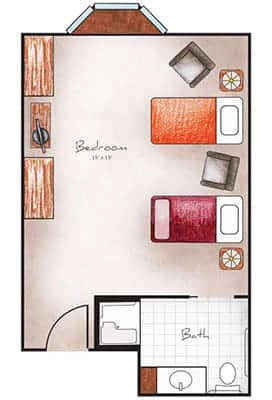
Private Suite
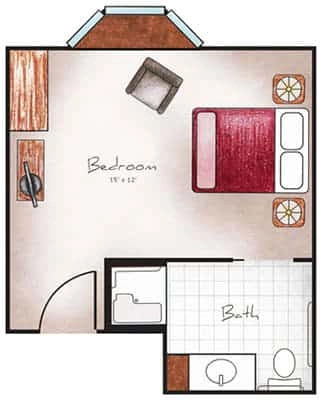
Other Living Options at The Heritage at Shalimar Gardens
We offer a range of adaptable living options to accommodate you and those you care about, whether you’re looking for assisted living or assisted living respite and recovery care. We are here to provide the right level of support for each stage of life, so we encourage you to explore our FAQ and meet the neighbors pages to learn more about how we can accommodate your family.
What Our Residents Say
“The kind, caring, respectful, and professional staff provided a safe and loving home for my parents in the Fremont, NE facility. The property is lovely and well maintained. The leadership team of each department is outstanding and each encounter with any staff member was incomparable. I highly and gratefully recommend Shalimar Gardens and the caring staff who create a positive daily living environment.”
– Lynn Johnson – December 16th, 2022
The Heritage at Shalimar Gardens
Virtual Tour

Have a specific question?
Give us a call at (402) 281-0320 or Contact Us
Living Options at The Heritage at Shalimar Gardens
Communities Near The Heritage at Shalimar Gardens
Amenities at The Heritage at Shalimar Gardens
- Outdoor courtyard
- Small pets welcome
- Salon/Barber shop
- Exercise classes
- Coffee shop
Services at The Heritage at Shalimar Gardens
- Bathing/showering
- Food preparation and meal delivery
- Mobility assistance
- Personal laundry
- Pet care, including feeding, walking and clean-up

